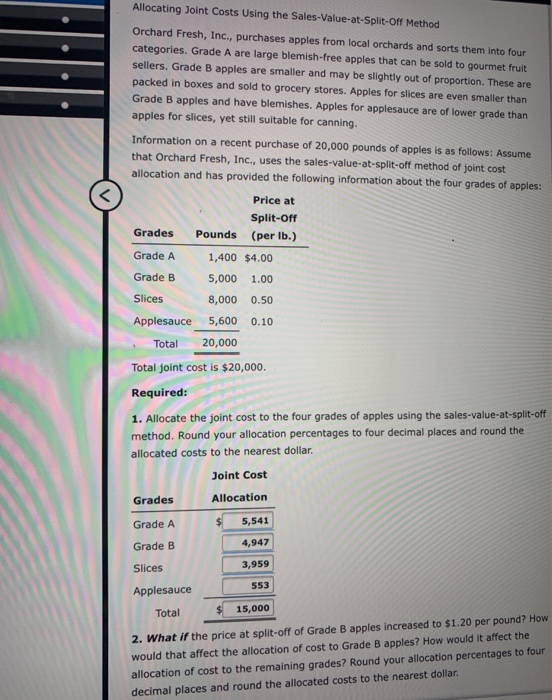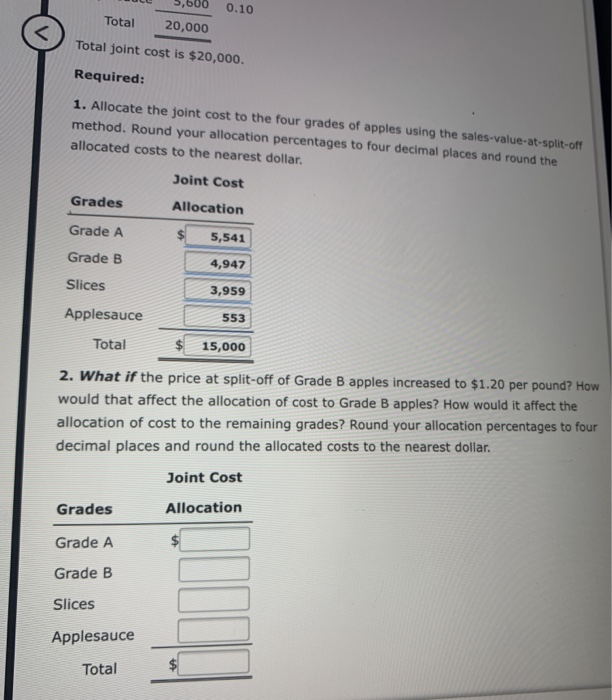

Allocating Joint Costs Using the Sales-Value-at-Split-Off Method Orchard Fresh, Inc., purchases apples from local orchards and sorts them into four categories. Grade A are large blemish-free apples that can be sold to gourmet fruit sellers. Grade B apples are smaller and may be slightly out of proportion. These are packed in boxes and sold to grocery stores. Apples for slices are even smaller than Grade B apples and have blemishes. Apples for applesauce are of lower grade than apples for slices, yet still suitable for canning. Information on a recent purchase of 20,000 pounds of apples is as follows: Assume that Orchard Fresh, Inc., uses the sales-value-at-split-off method of joint cost allocation and has provided the following information about the four grades of apples: Price at Split-Off Grades Pounds (per lb.) Grade A 1,400 $4.00 Grade B 5,000 1.00 Slices 8,000 0.50 Applesauce 5,600 0.10 Total 20,000 Total joint cost is $20,000. Required: 1. Allocate the joint cost to the four grades of apples using the sales-value-at-split-off method. Round your allocation percentages to four decimal places and round the allocated costs to the nearest dollar. Joint Cost Grades Allocation Grade A $ 5,541 Grade B 4,947 Slices 3,959 Applesauce 553 Total $ 15,000 2. What if the price at split-off of Grade B apples increased to $1.20 per pound? How would that affect the allocation of cost to Grade B apples? How would it affect the allocation of cost to the remaining grades? Round your allocation percentages to four decimal places and round the allocated costs to the nearest dollar L 5,606 0.10 Total 20,000 Total joint cost is $20,000. Required: 1. Allocate the joint cost to the four grades of apples using the sales-value-at-split-off method. Round your allocation percentages to four decimal places and round the allocated costs to the nearest dollar. Joint Cost Grades Allocation Grade A 5,541 4,947 3,959 Grade B Slices Applesauce Total 553 $ 15,000 2. What if the price at split-off of Grade B apples increased to $1.20 per pound? How would that affect the allocation of cost to Grade B apples? How would it affect the allocation of cost to the remaining grades? Round your allocation percentages to four decimal places and round the allocated costs to the nearest dollar. Joint Cost Grades Allocation Grade A Grade B Slices Applesauce Total








